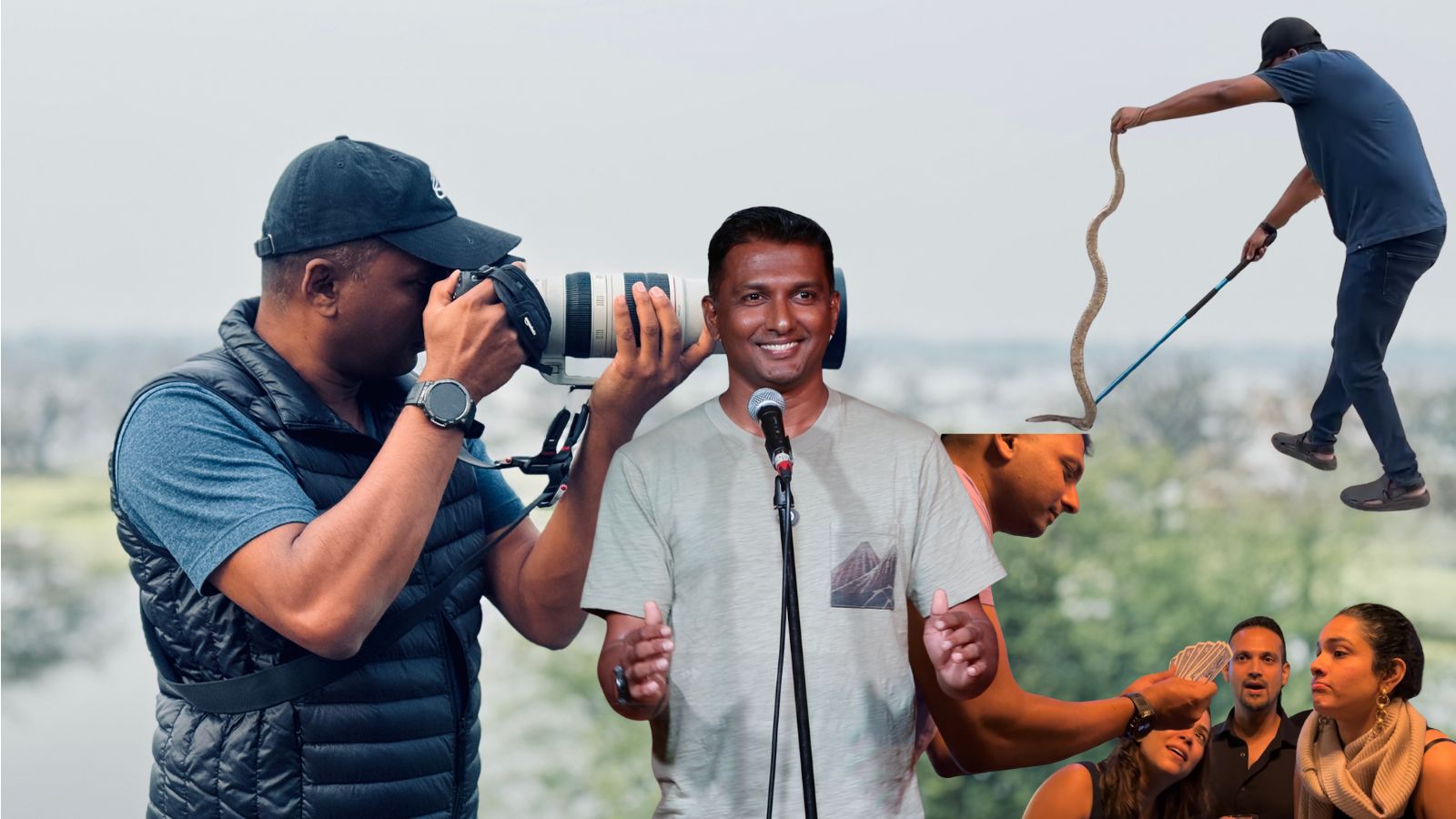Most people understand compound interest in money. You put in a little, it grows, it multiplies. What they don’t realise is that life works the same way — if you invest in the right things.
I’m not talking about stocks, mutual funds, or the latest “ten-minute productivity hacks.”
I’m talking about the hours, days, and years you spend on things that don’t fit neatly under your “job title.”
The time you crouch in wet grass to photograph a bird.
The Saturday evening you spend learning a magic trick you’ll perform for exactly three friends.
The drive you take at 11 PM because someone called about a cobra in their backyard.
Individually, these moments look scattered. Collectively, they build a kind of wealth that’s invisible on paper but undeniable in how it changes you.
The Spillover Effect
When I’m in a boardroom talking brand strategy, I don’t consciously think, Ah yes, this patience came from hours of birding. But it’s there.
When I’m on stage doing stand-up, I’m not deliberately applying the split-second reflexes from badminton. But they’re there.
When I’m rescuing a snake, the calm under pressure probably owes a debt to both comedy’s hecklers and badminton’s smashes.
Everything you do, outside your “main” thing, spills over into everything else you do. It’s the world’s most undervalued growth hack — and it has nothing to do with LinkedIn endorsements.
Why Most People Miss This
Because the returns aren’t immediate.
Birding won’t get you a promotion next quarter. Comedy won’t instantly land you a big client. Snake rescues won’t pad your bank account.
And so, most people stop investing in them.
But here’s the thing — when you do them long enough, they make you sharper, calmer, more adaptable, more human. That’s when life starts compounding.
You Don’t Need to Be “Passionate”
I’m wary of the word “passion.” It’s too heavy, too cinematic. You don’t have to be “passionate” about something to invest in it. You just have to be curious enough to start and stubborn enough to keep going.
I didn’t start birding to become a wildlife photographer. I didn’t start comedy to run a club. I didn’t start rescuing snakes to hit a number.
But years later, each of these has paid me back in ways no spreadsheet could measure.
The Real Lesson
Don’t over-optimise your life for one goal. Over-optimise it for good inputs.
Collect skills, perspectives, and stories the way compound interest collects value.
And remember — you won’t always see the connection at first. You’ll only notice it years later, when something you learned in a forest suddenly helps you win in a meeting, or something you picked up on stage helps you in a rescue.
The balance sheet of life is long-term. The interest rate is higher than you think.
You just have to keep making deposits.

